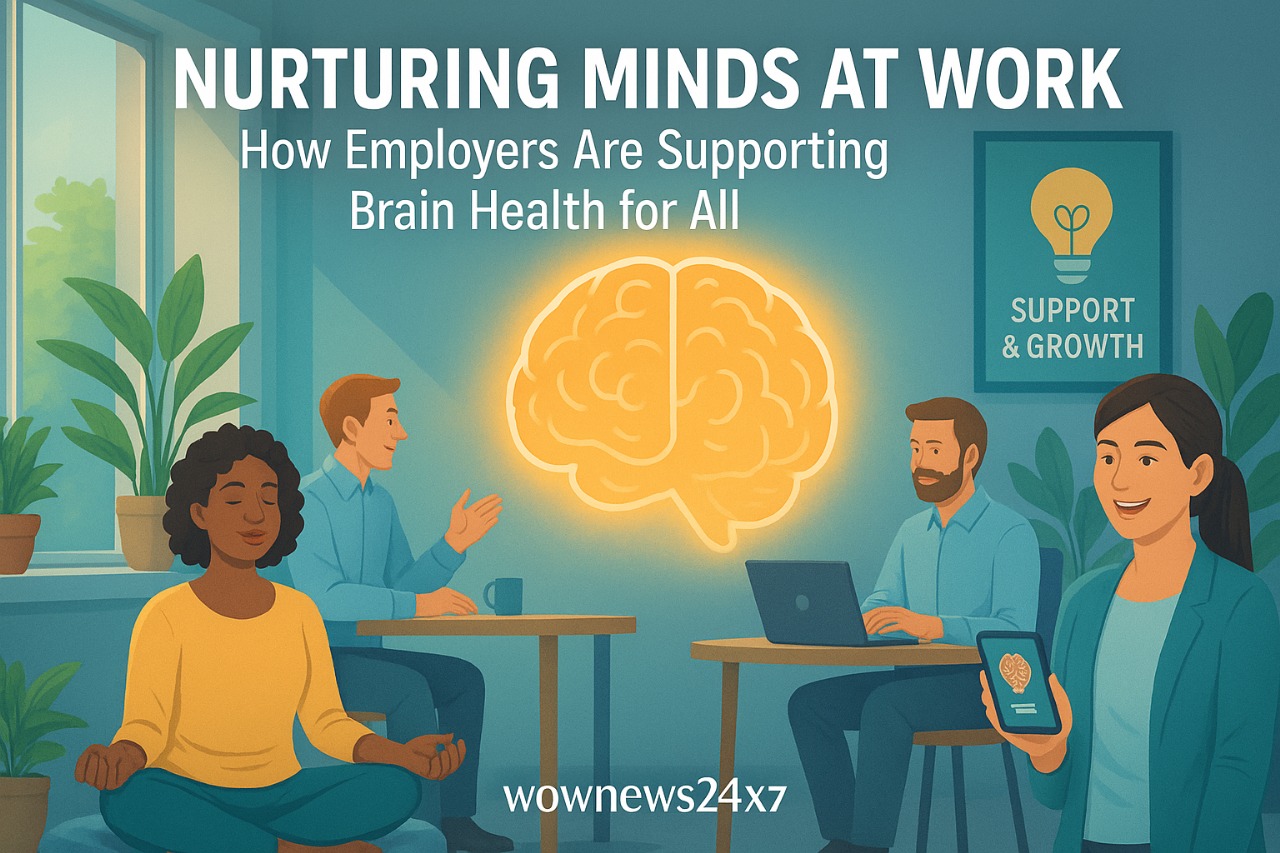As the worldwide workforce contends with unprecedented threats-from technological overload and AI upheaval to accelerating burnout and brain fatigue-a new battle cry is ringing out in boardrooms and break rooms everywhere: it's time to defend the one asset above all, the human mind. In 2025, the preservation of mental and cognitive well-being isn't merely an ethical obligation-it's increasingly becoming a strategic business imperative, transforming workplace policies, leadership attitudes, and the culture of work itself.
The Broadening Concept of Workplace Safety
Workplace safety has grown well beyond hard hats and fire drills. Today, physical, psychological, digital, and ergonomic hazards are all in scope. With hybrid work in place to stay, organizations now must defend employees from cyber attacks, mental health stressors, and remote workstation-specific ergonomic pitfalls. Smart technology, including wearable devices and artificial intelligence-based hazard detection, is being used to track both physical and mental health in real time, and predictive analytics assist in signaling risks before they materialize.
Brain Health Takes Center Stage
Businesses everywhere are realizing that brain health-incorporating cognitive ability, clarity of mind, and emotional resilience-is the key to long-term performance. Programs now extend beyond the old wellness offerings to include:
-
Cognitive Wellness Initiatives: Mindfulness and meditation courses, brain-training software, and neuroplasticity sessions to increase mental quickness.
-
Mental Restoration Breaks: Timed "concentration time," "no meeting blocks," and brief restorative breaks to counteract mental exhaustion.
-
Sleep and Nutrition: Awareness of the effects of sleep and brain-nourishing foods, with nutritious snacks and flexible calendars becoming standard.
-
Neuroscience-Inspired Offices: Designing offices and schedules in accordance with natural rhythms of cognition, minimizing sensory overload and facilitating deep focus.
Mental Health: The New Safety Frontier
Burnout, anxiety, and emotional exhaustion are recognized today as occupational risks. Innovative employers are integrating mental health care into their daily operations, providing Employee Assistance Programs (EAPs), online therapy applications, and mental health training for managers. The objective: to identify problems early, de-stigmatize mental health discussions, and offer strong support before the time for crisis management arrives.
AI and Digital Safety: Balancing Speed with Security
As it changes the workplace, employees are hungry to capture its promise-but concerned about its peril. In a recent McKinsey survey, more than half of employees reference cybersecurity and data privacy as key concerns, while others fear AI errors, bias, and job loss. Managers are under obligation to speed AI implementation while maintaining strong safeguards, open governance, and continuous employee training.
Hybrid Work: New Risks, New Solutions
The hybrid model brings new ergonomic hazards-think bad home office ergonomics and more screen time-in addition to psychosocial risks such as isolation and job insecurity. Employers are pushing back with ergonomic checkups for remote workers, cyber hygiene instruction, and remote emergency response procedures, so that safety measures follow workers beyond the office space.
Inclusivity and Stigma: Addressing Hidden Workplace Challenges
Visionary employers are also confronting issues long pushed under the carpet, like the taboo of menstruation and menopause. Trade unions and multinational organizations like Vodafone are introducing policies to help staff going through these life transitions, providing flexible working, paid time off, private offices, and special support materials. Such moves not only encourage equality but also reduce turnover of experienced staff, closing gender gaps and creating a culture of dignity and respect.
Seven Strategies for Protecting Brains in 2025
-
Embracing Smart Tech: Leverage wearables, AI, and predictive analytics to monitor safety and health in real time.
-
Prioritizing Mental Health: Integrate mental health support into policy, leadership development, and everyday workflows.
-
Protect Hybrid Work: Deliver ergonomic tools, cyber training, and remote safety plans.
-
Promoting Brain Health: Provide cognitive wellness programs, recovery breaks, and sleep/nutrition education.
-
Addressing Psychosocial Risks: Address isolation, job insecurity, and AI-inflicted stressors with proactive policies.
-
Nurture Inclusivity: Adopt stigma-busting policies on menopause, menstruation, and related under-talked-about topics.
-
Train Leaders: Train managers to identify and promote emotional and cognitive well-being as central to their role.
The Bottom Line: A New Social Contract for the Workplace
In 2025, brain protection is no longer a "nice to have"-it's a business imperative. Companies that take care of cognition and mental well-being are not only stopping harm; they're creating robust, creative teams poised to succeed in an era of change. The future belongs to those employers who come together to advocate for the health of their most valuable resource: the human mind.
Sources: TieTalent, Global Wellness Institute, McKinsey, Forsa
Advertisement
Advertisement








